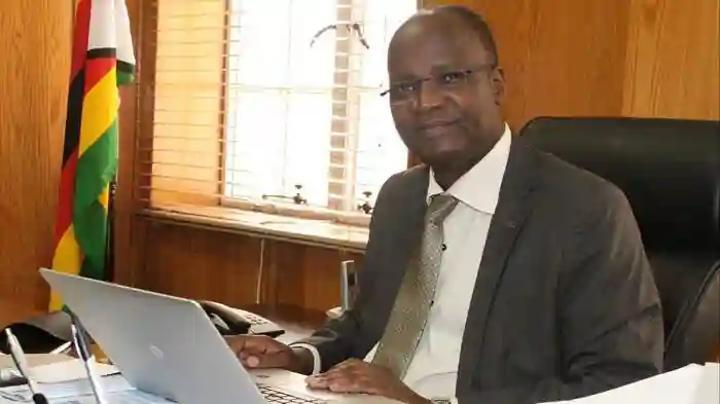Zim no longer capable of holding lawful elections

Professor Jonathan Moyo
Former Information Minister Jonathan Moyo has expressed doubt over the possibility of holding a lawful general election on August 23, 2023 in Zimbabwe.
Responding to a Sunday Mail story on the amendment of the Electoral Act, Moyo said it was no longer possible for Zimbabwe to hold lawful general elections. He said:
LAWFUL GENERAL ELECTION ON 23 AUGUST NO LONGER POSSIBLE:
Delayed Resolution of Nomination Disputes by the Courts has Irretrievably Compromised Integrity of Election leading to Illegal and Unconstitutional Amendment of the Electoral Act by the Government
The amendment in question, Statutory Instrument 140A of 2023, extended the deadline for the submission of postal voting materials to the Zimbabwe Electoral Commission (ZEC) from August 9 to August 20. However, due to delays caused by court cases challenging nomination outcomes, no registered voters eligible for postal voting have received their ballots.
Moyo argues that the amendment of the Electoral Act is unconstitutional and violates Section 157(5) of the Zimbabwean Constitution, which states that no changes to electoral laws can be made after an election has been called. He also highlights the lack of transparency regarding the printing and distribution of ballot papers, as required by electoral law. He said:
ZEC has no power to amend the Electoral Act, at all, whether during or outside an election. And neither Parliament nor the Government can lawfully amend the Electoral Act or amend or make any other law that affects elections after the proclamation of an election and have the law apply to that election. The proclamation for the 23 August harmonised general election was gazetted on 30 May 2023. Section 157(5) of the Constitution of Zimbabwe provides that: After an election has been called, no change to the Electoral Law or to any other law relating to elections has effect for the purpose of that election.
Given the current circumstances, Moyo raises several critical questions that cannot be reasonably answered. These include the timeline for distributing postal ballots to qualified voters, the receipt of these ballots by constituency and polling station officers, and the counting of postal votes alongside other ballots.
Moyo concludes that the electoral crisis is not the fault of the Zimbabwe Electoral Commission but rather the result of disputes among opposition parties and candidates, delays in court resolutions, and the failure to adhere to time-bound electoral processes.
In light of these concerns, Moyo contends that a lawful and constitutional election on August 23 is no longer feasible, and Zimbabwe finds itself in an unprecedented electoral crisis.
It’s important to note that this text represents Jonathan Moyo’s perspective and should be viewed as his opinion on the matter.
Jonathan Moyo argues that an election is governed by rules and cannot be a free-for-all or a process where those in charge can manipulate the rules as they please. When these rules are broken, especially to the extent that they could impact the credibility or outcome of an election, the election should not proceed as if everything is normal.
The delays in dispatching postal ballot papers to eligible voters for the August 23, 2023, election, caused by printing delays and unresolved nomination disputes, have made it impossible for postal votes to reach polling stations and be counted alongside other votes. These unprecedented delays have made it practically impossible for a lawful and credible election to take place on the scheduled date. He added:
These unprecedented delays have combined to make it practically impossible for a lawfully credible election to be held on 23 August 2023. An election that is not based on the rules as they were at the start of the election simply cannot be credible by definition.
Moyo highlights the 2018 presidential election as an example of the Zimbabwe Electoral Commission (ZEC) compromising the credibility of the election by creating an unlawful transmission route for the results. He argues that ZEC, as an independent institution, should seek guidance from the Constitutional Court to determine how to legally and constitutionally resolve the current crisis.
Proceeding with the election under the present circumstances not only risks producing disputed results for local authorities, parliamentary seats, and the presidency but also threatens to discredit the entire election. The number of eligible postal voters is significant, and their votes can impact the outcome of the election.
Moyo concludes that holding the election under these extraordinary circumstances could undermine its credibility and result in widespread disputes.






